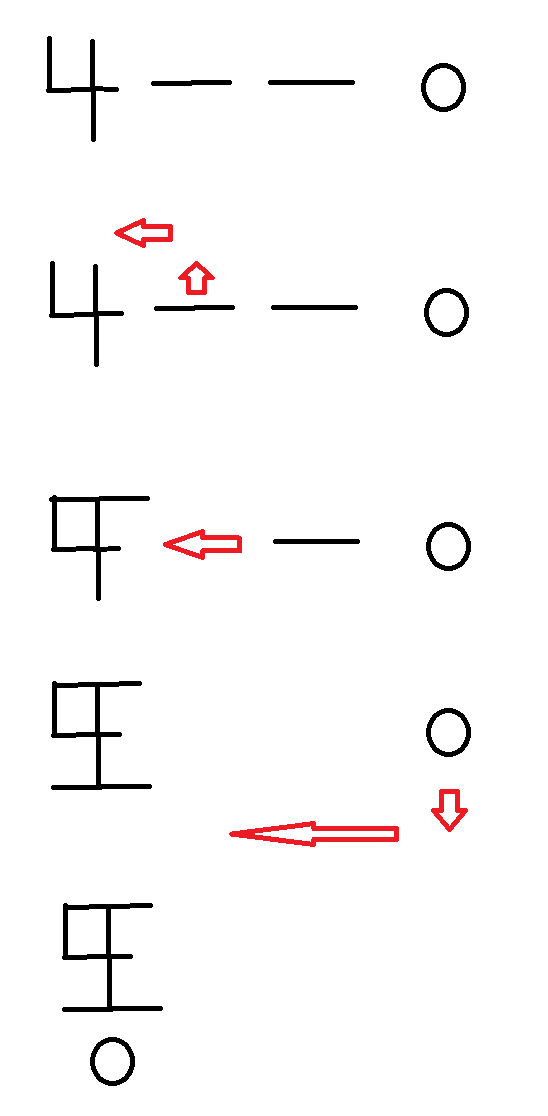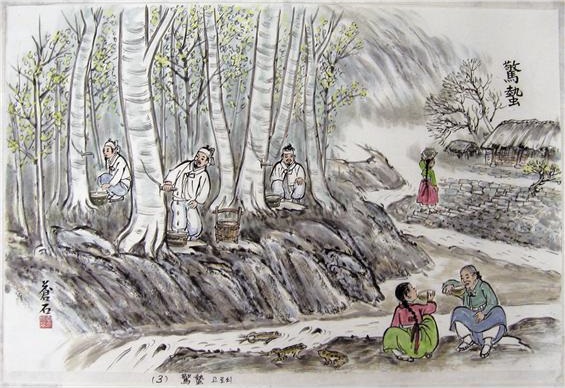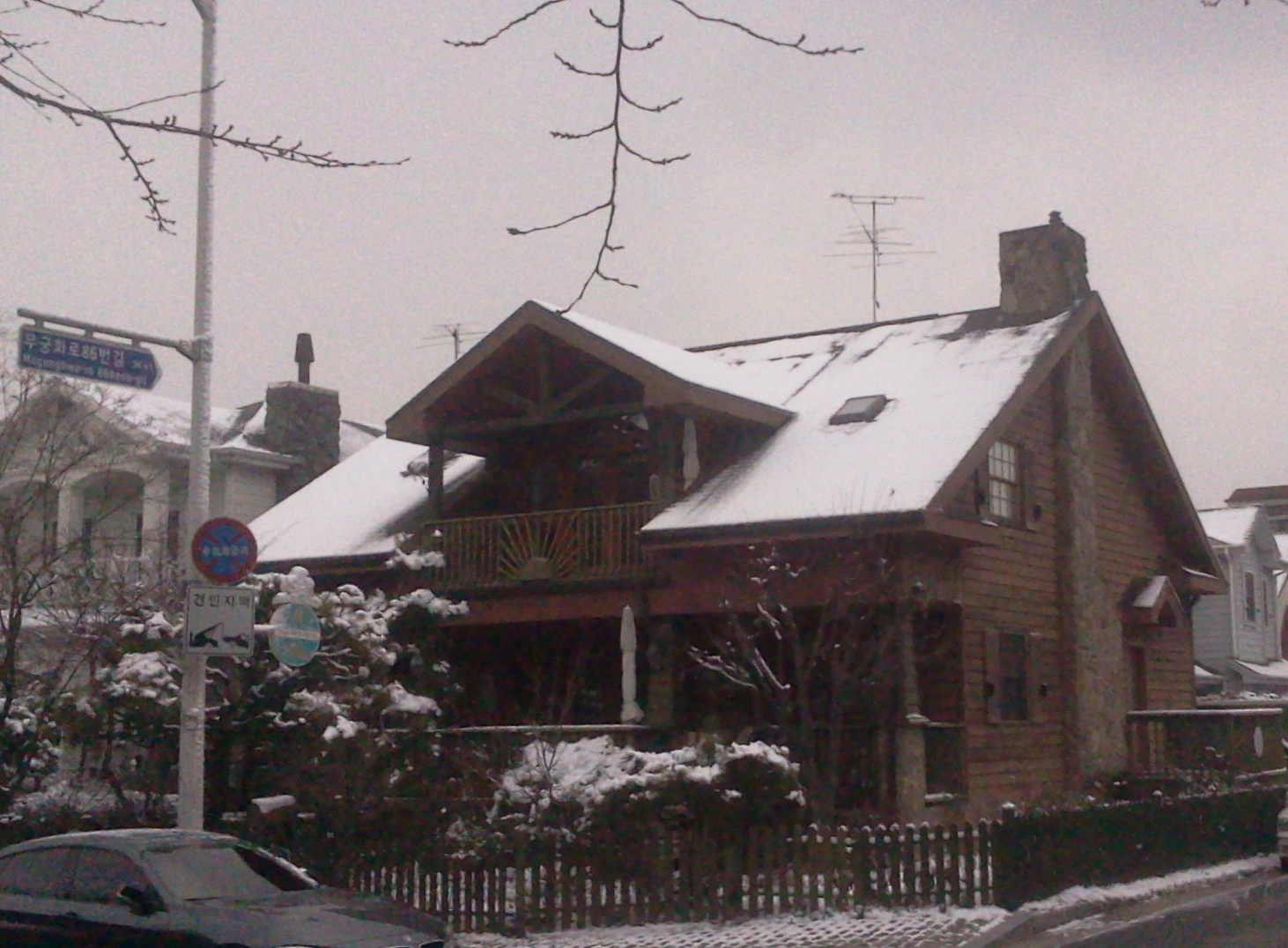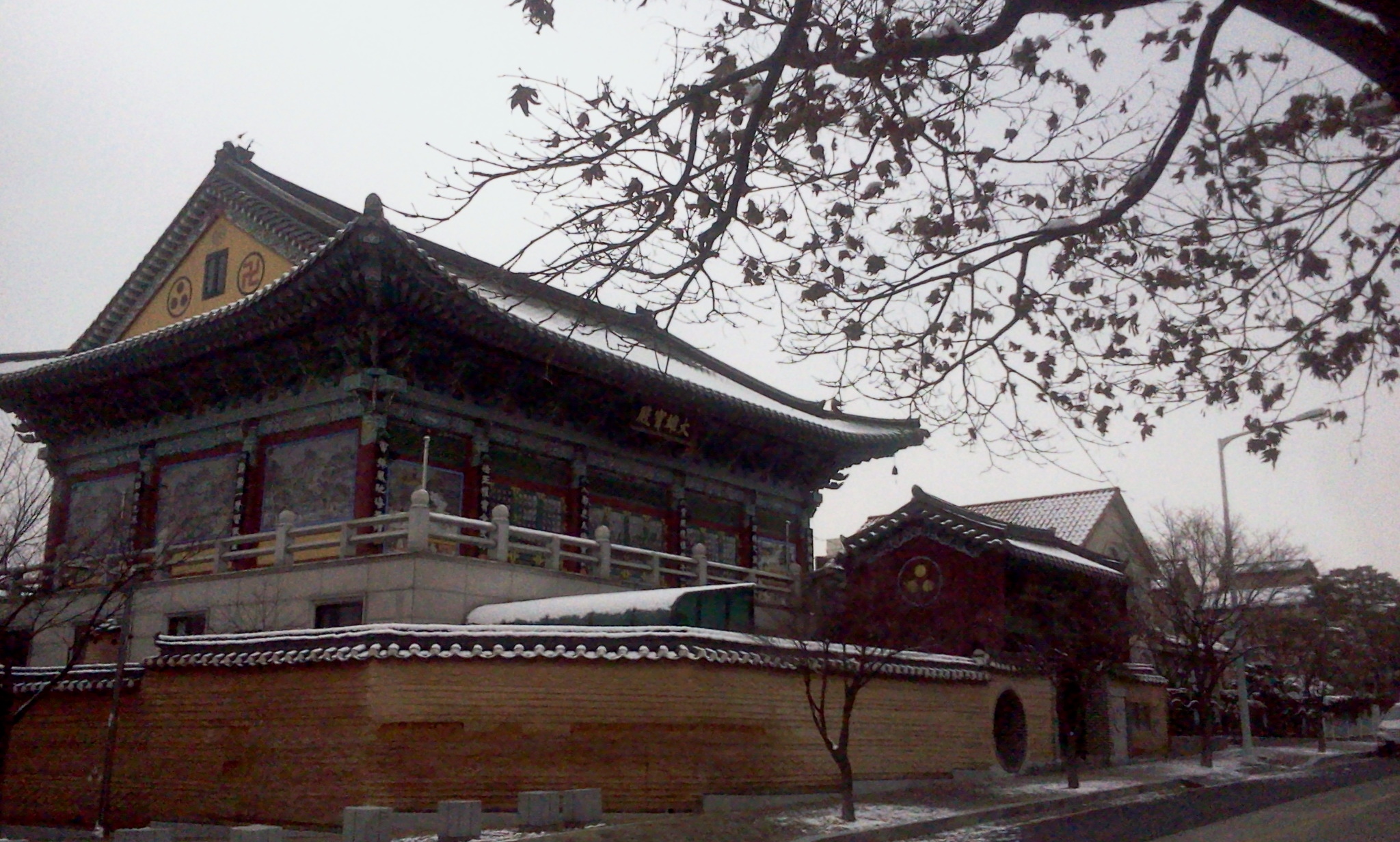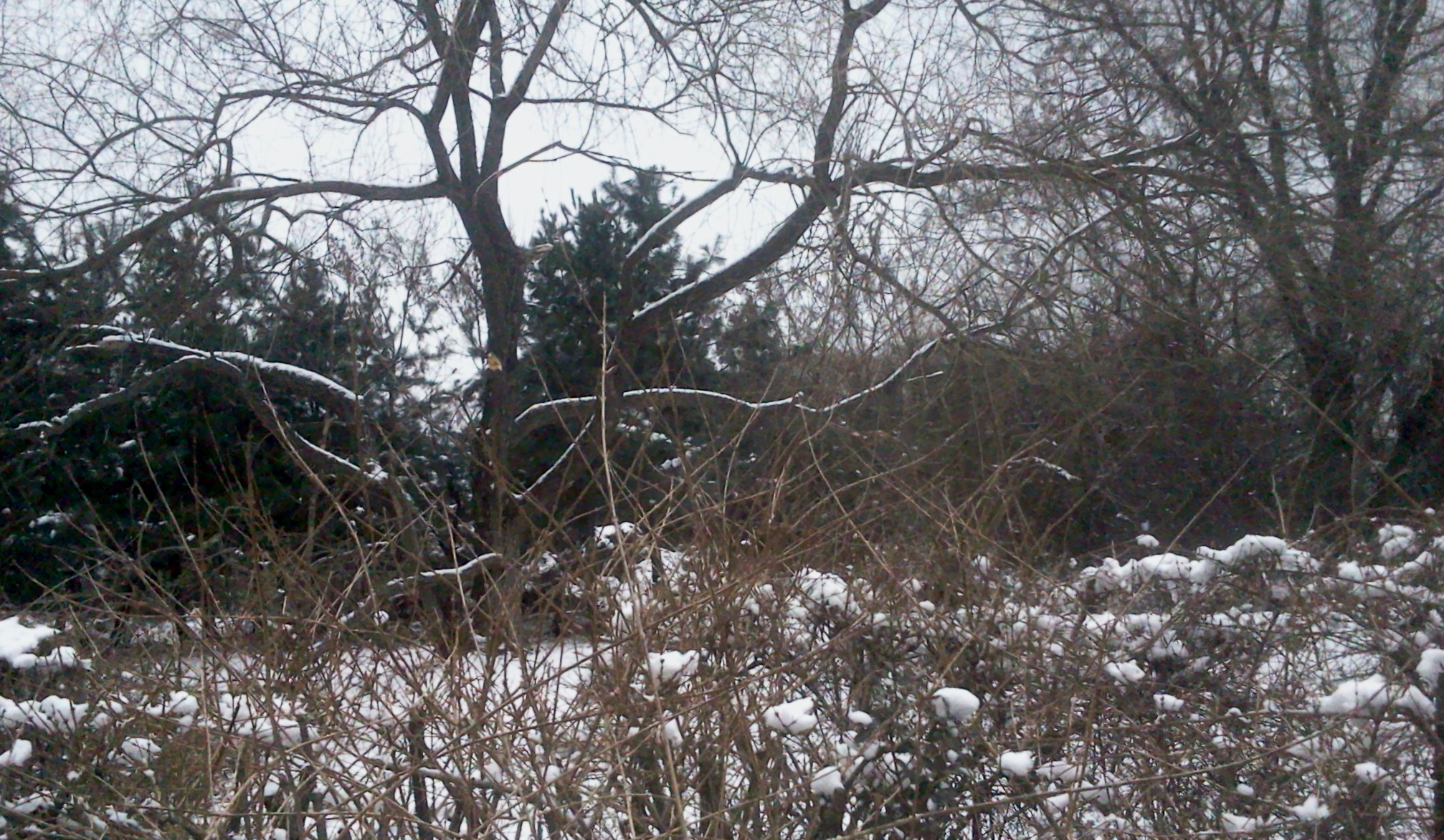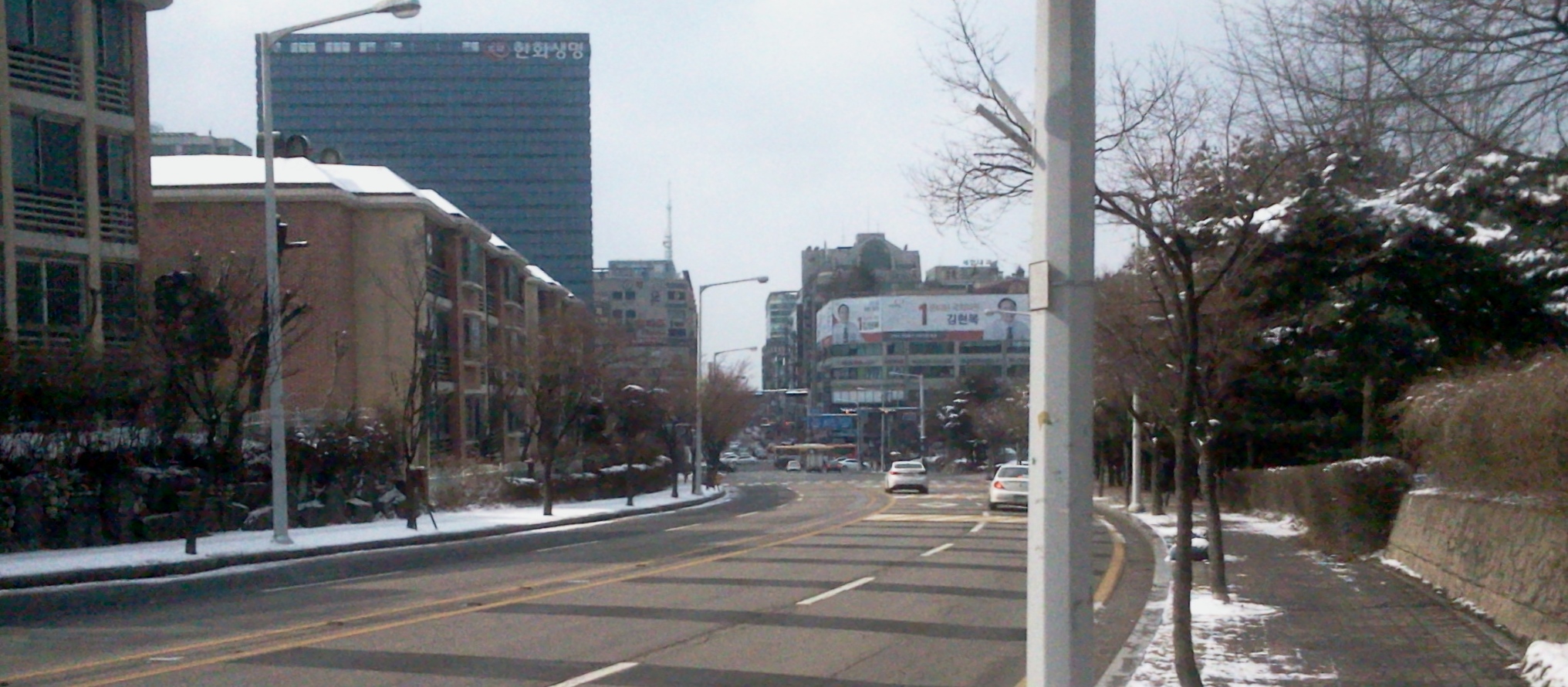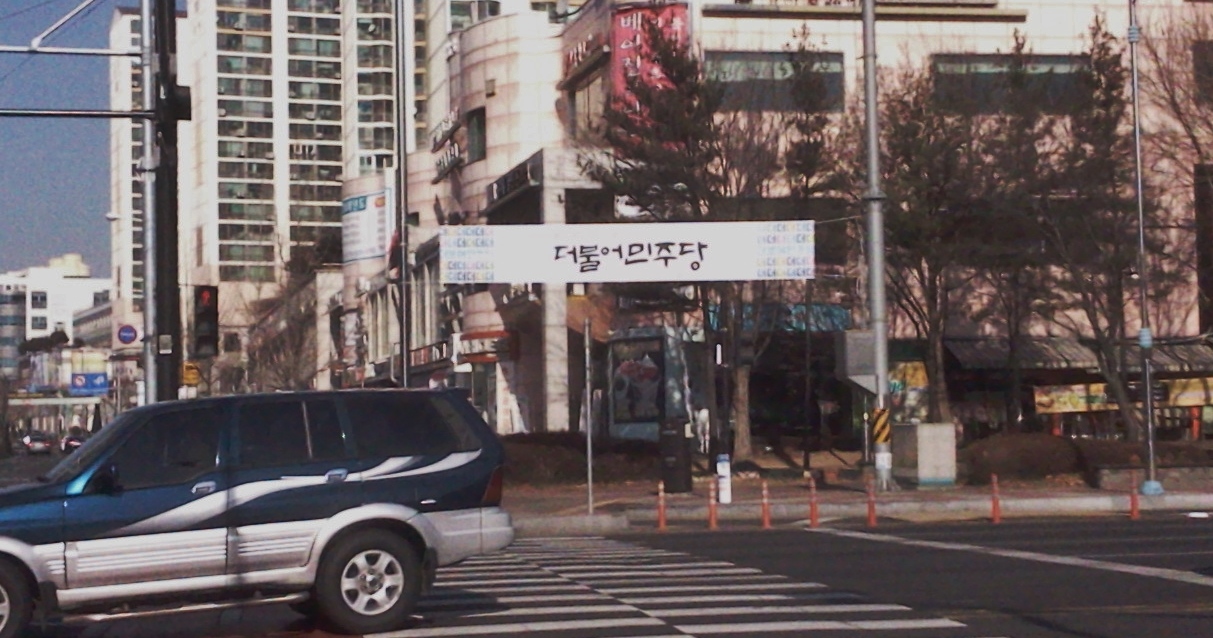I tend to allow my HS2B cohort to socialize, in Korean, during class, if they’re working on some task, as last night, when I had them writing an essay. This is because they are all very good students, they all do their work, they are all good at focusing when necessary.
At least half the time, their talking is entirely relevant to the task at hand – ideas for their essays, bouncing grammatical or compositional questions off of each other, etc. I think this is quite useful. Given a task, the class can, to some degree, “teach itself.”
I like the class. The additional consequence is that I get to eavesdrop on Korean teenager conversation.
Mostly, it slips past me when they drift off topic, but sometimes I catch something fairly well.
Yeongseo (a girl) had said something to the effect of “He’s cute when he does that,” in reference to something Hongseop (a boy) was doing. Hongseop is sometimes the butt of good-natured joking, just because of his laconic personality. So this was perhaps an unexpected remark on her part.
Immediately in response to Yeongseo’s comment, Hanseam (another girl) quipped, in mock disbelief, 눈 괜찮아? ([nun kwaenhchana?] = are your eyes ok?). This is typical teenage sniping, but it was incredibly humorous in the context. And for whatever reason, I started laughing, which caused Hansaem some embarrassment realizing I was eavesdropping on the conversation.
This morning, I cancelled my hospital appointment, because this cold/flu I have is quite bad, and I don’t really want to have to lie there while they poke around in my mouth when I have a sore throat, congestion, cough, etc.
[daily log: walking, 10km]

